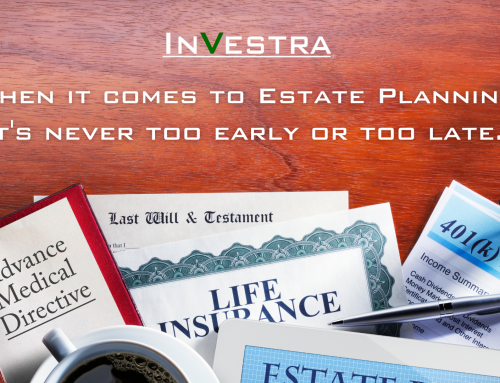The managers of well-run businesses usually name “backups” to keep things going smoothly — just in case. That’s also a smart plan for your personal finances, where you risk experiencing financial losses or other difficulties if you can’t make your own decisions because of a long illness or other unexpected problem.
You might prepare for this unhappy possibility by giving a family member or another trusted individual the legal power to act for you if necessary. But what would happen if you made an unsophisticated individual your personal financial backup? You might be more comfortable using what is called a “living trust” — with a professional trustee that could easily step into your financial management role if needed.
Standby Protection
Here’s how a living trust could potentially work. You initially transfer assets into the trust, naming yourself as the trustee. You also name a reliable, experienced trustee as the successor trustee. At that time, you simply continue managing your finances as usual, until the circumstances that you’ve specified in your trust agreement — an illness or extended travel, for instance — prevent it. Then, the successor trustee will take over management of the trust assets for as long as necessary.
Other Advantages
Providing a reliable financial backup is just one advantage a living trust can offer. Another is flexibility. You maintain control of your assets during your lifetime, and are free to make changes anytime. For example, you could give your trustee more or less responsibility, amend the trust’s provisions, or even cancel the trust entirely.
Here’s an additional advantage. Your trust can protect your family after your death by keeping your assets under a professional investment manager’s uninterrupted care. And living trust assets don’t pass through probate. That can make the settlement of your estate easier, faster, and often much less costly.
Eventually, your family or other beneficiaries will receive the trust’s assets on the schedule you’ve arranged and under the conditions you’ve specified. That’s another advantage — the ability to determine what happens to your wealth over the long term. And the terms of the trust are private, unlike the terms of a will that passes through the probate process.
Trial Period
Last, there’s a practical advantage: You can give your future asset management arrangements a test drive. If your trustee manages the trust assets during your lifetime, you’ll be able to decide whether you’re satisfied with the arrangements you’ve made — and with the quality and reliability of the trustee’s services.
This information is not intended to be a substitute for specific individualized tax or legal advice. We suggest that you discuss your specific situation with a qualified tax or legal advisor. LPL Financial Representatives offer access to Trust Services through The Private Trust Company N.A., an affiliate of LPL Financial.
Required Attribution
Because of the possibility of human or mechanical error by DST Systems, Inc. or its sources, neither DST Systems, Inc. nor its sources guarantees the accuracy, adequacy, completeness or availability of any information and is not responsible for any errors or omissions or for the results obtained from the use of such information. In no event shall DST Systems, Inc. be liable for any indirect, special or consequential damages in connection with subscriber’s or others’ use of the content.
© 2018 DST Systems, Inc. Reproduction in whole or in part prohibited, except by permission. All rights reserved. Not responsible for any errors or omissions.






